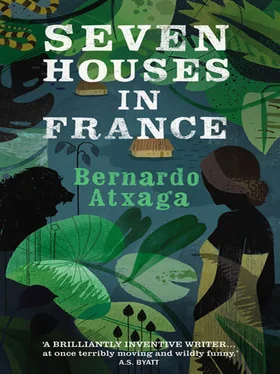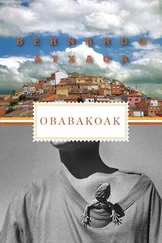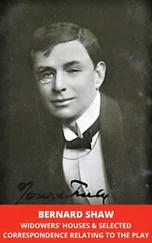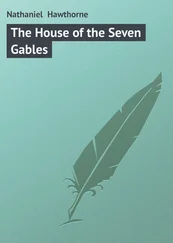He didn’t want to think about disease any more and so looked instead at one of the knots in the mosquito nets. He focussed on the poem again. ‘I do not speak, Calliope, of the war between white rose and red, nor of that war when, years before, Hector faced Achilles …’ A tiny change had just occurred to him: ‘I do not speak, Calliope, of the war between white rose and red, nor of that war when, as you well know, Hector faced Achilles …’
Sleep overwhelmed him as he was searching for the next line of the poem, and the word that had been in his mind shortly before — syphilis — stirred in his head, presenting him with the image of the Master as he had seen him in Paris once when he was very young and the Master was ill and ugly and contorted with pain. At the whim of the dream, however, the image was immediately replaced by that of another ailing man, sitting in a rocking chair at the door of Government House, staring up at the palm tree in the square. At first, he didn’t realise who it was, because the man’s face was all bruised, but suddenly he did: it was him, Captain Lalande Biran. He had contracted syphilis, and the monkeys were screeching at him from the dense fronds.
When he woke, he was sitting up in bed. Outside, in the jungle, the monkeys really were screeching. And that wasn’t the only true aspect of the dream, the rest of it fitted too, not the details, but the general feeling. He did not feel comfortable in Yangambi. He couldn’t listen to music in Yangambi; there were no cafés in Yangambi like the ones he used to frequent in Paris, La Bonne Nuit, for example, with its white tablecloths; in Yangambi, you couldn’t ever enjoy a bowl of Vichyssoise followed by mouton à la gourmandise . Toisonet laughed at this list of complaints. Once, he had sent Lalande Biran a photo actually taken in La Bonne Nuit, where he could be seen sitting before a platter of mouton à la gourmandise in the company of half a dozen Parisian poets. It should be said, though, that the same boat that brought the photo also brought a crate of Veuve Clicquot. Toisonet could be very good and very wicked at one and the same time.
The Captain noticed Donatien standing on the other side of the mosquito net, and next to him was a girl of about fifteen. She was strong, very like the girl he had imagined. She had thick lips. He could see the shape of her breasts beneath her sariya . And her legs were strong too. She smelled very clean, of the soap Donatien used, and an immaculately white handkerchief covered her eyes. Everything was exactly as he liked. He used to divide this Thursday play into three acts: first, the drawing, then the embraces and caresses, until the moment came to remove the handkerchief from the girl’s eyes; then, the final act.
‘Donatien,’ he said. ‘I’m going to leave a very important letter on my desk in the office. I want you to put the drawing I’m about to do in that same envelope and tomorrow take it down to the boat and place it in the hands of the man in charge of the post. Don’t leave it in the pigeon-hole at the club.’
On some Thursdays, when he’d had his fill, he gave his assistant permission to take the now ex-virgin back with him to his hut. Donatien was waiting to be given this permission now. His Adam’s apple moved up and down in his throat.
‘Bring me my drawing things,’ ordered Lalande Biran.
The Adam’s apple disappeared and reappeared. There would be no prize today. The Captain wanted him to go into the jungle with the askaris and not leave the choice of girl to them. That was why he was being punished.
He placed a sketch pad and three pencils on the Captain’s bed, then, having removed the girl’s clothes, he led her to him. The girl said something, and Donatien replied in one of the few words he knew in the Lingala language: Tsui ! Be quiet! He placed one hand on her back and was aware of the heat of her skin.
‘That will be all, Donatien!’ ordered the Captain.
Donatien saluted before leaving. One had to take things as they came. If he couldn’t have that girl, he would have the next. The main thing was to stay in the Captain’s good books and retain his position as orderly, a position that was the envy of all the officers in the garrison, because if they, so to speak, needed to satisfy their itch, they were obliged to take risks and pay for their adventures with one or even several infections.
ON THE FIRST Thursday in September, the steamship Roi du Congo brought eight letters for Lalande Biran. Donatien collected them from the Club Royal and took them and a pot of coffee to him at Government House.
‘Letters from your wife, Christine Saliat de Meilhan, and from your friend Armand Saint-Foix,’ he said, placing the two letters on the desk. ‘The others are official despatches from Brussels. I’ll leave them here on the tray.’
Donatien poured out some coffee and waited for Lalande Biran to make room for the cup on the desk crammed with papers, most of which bore only a few lines of writing, many crossings out and the odd sketch. There were ten cigarette ends in a saucer, which Donatien hastily removed.
‘Do you need anything else, Captain?’ asked Donatien when he returned with the clean and empty saucer.
Lalande Biran shook his head. He had put his wife’s letter on top of all the other papers and was reading it while he sipped his coffee.
Before leaving the room, Donatien picked up the crumpled sheets of paper lying on the floor and threw them into the waste basket. All bore the same title, written in capitals: ‘A DUEL BETWEEN KINGS’. From the door, Donatien said: ‘With your permission, sir, I’m going to do some work at the club storeroom. A lot of stuff came in on the Roi du Congo , and if I don’t move fast, the place will fill up with mice, and I’d hate them to get their teeth into the salami before we do.’
‘If you don’t leave this minute, I’ll banish you to the downstairs room for a whole week,’ threatened Lalande Biran. The ‘downstairs room’ was the name given to the dungeon in Government House.
Donatien saluted before vanishing again.
As in all the previous letters, Lalande Biran’s wife’s overriding concern were the houses, or, more specifically, the house she wanted to buy in St-Jean-Cap-Ferrat. The letter was full of figures and, at the end, above her signature, were these words: ‘ Essaie, mon chéri ’ — ‘Do your best, my love’. They were written more boldly than the rest, as if Christine had dipped her pen deep in the inkwell before writing them.
He lit a cigarette. His wife’s insistence made him nervous.
‘Do you remember when we talked in the garden in Brussels, and how we chose 7 and 5 as magic numbers: 7 houses in 5 years?’ she wrote. He could hear his wife’s clear, crystalline voice behind the words. ‘As you know, Captain, the numbers have changed. You have been in Africa now for 6 years, and in order for us to buy the house in St-Jean, we need just two more batches, 10–500 and 10–500. Do your best, Captain. I ask you this on my behalf and on that of our friend Armand. It would mean, at most, one more year and then the numbers would coincide: 7 years, 7 houses. Van Thiegel will help you. Talk to him. I’m sure he’ll be prepared to put in a little extra effort.’
10–500 meant 10 elephant tusks and 500 mahogany trees. That was a lot. Lalande Biran raised his cigarette to his lips. Christine spoke of just two more batches, but that wouldn’t necessarily be easy. Sometimes, several days went by without them seeing a single elephant.
The mandrills were screeching in the jungle, agitated by the torrential rain. For once, the noise did not affect him. He was too preoccupied. A troubling thought prevented him from paying attention to anything else. He was wondering about the contents of the second letter on the desk. It was quite bulky and bore two seals, the Belgian royal seal and another from the consulate in Léopoldville. Toisonet’s round writing covered the whole envelope. Lalande Biran decided to open it, putting his wife’s letter to one side.
Читать дальше












